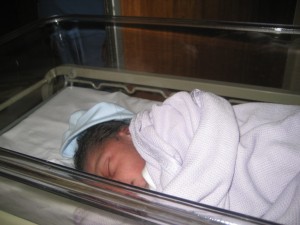A SAMPLE OF AN EKITI VARIANT OF THE FOLK TALE “LADÉJOMORE”
Ladéjomore Ladéjomore1
Èsun
Oyà* Ajà gbusi
Èsun
Oyà ‘lé fon ‘ná lo 5
Èsun
Iy’uná k ó ti l’éin
Èsun
I y’eran an k’ó ti I’újà
Èsun 15
Ogbé godo s’erun so
O m’ásikù bo ‘so lo
O to kìsì s’áède
Me I gbo yùngba yùngba yún yún ún
Èsun
LITERAL ENGLISH TRANSLATION OF THE ABOVE;
Ladejomore Ladejomore
(Refrain)
The wife of Ajagbusi
(Refrain)
The wife came looking for fire
(Refrain)
Look how bright this fireplace
(Refrain)
And how sweet smelling is this fatty meat
(Refrain)
She ate some of the meat
Hid the rest under her vests
Ran swiftly outside
I heard the salivating sound of her chewing
(Refrain)
The folk tale as I heard, is an attempt at explaining why babies do not have the power of legible speech. A new wife goes around looking for fire, and she finds one in a neighbour’s fireplace. In the same room are a baby laid to sleep and some roasted meat. The lady drawn strongly to the strong smell of fresh roasted meat at first ate some of the meat and then took the whole away, all with the baby watching on.
When the owner of the meat came back, the baby told of all that Ladejomore had done and that she had taking away all the meat. This brought great shame on Ladejomore and all of her family. The weight of the pressure brought on Ladejomore and her family eventually caused the
god’s to withdraw the power of speech from all babies.
The story is common across Yoruba land with small variations in dialect; an example is the word “oya”(line 3) for wife as against “iyawo” in Yoruba of Oyo. It has been confirmed for me that this story has been passed down from at least four generations away in my paternal lineage. My father says it was a story (inter alia) told to him by his mother, who had been told the
story by her grandmother. This sort of oral tradition is very useful to Historians in order to construct the past. It can be safely assumed that the above tale goes as far back as the 19th century. While archaeological evidence (another useful primary source) cannot give any ideas about people’s beliefs and culture, oral traditions obviously can.
It can be inferred from the folktale above that the people where probably hunters or kept livestock of some sort. It can also be inferred from the story that life back then was very communal. These among other things are great reflections of the beliefs of a people.
REFERENCES
1. Oral interview with Mr Akinsanya (age 65, indigene of Ekere Ekiti) on the
15th of July 2007 at his residence in Lagos.
2. Isola Olomola, “IFE, Annals of the Institute of Cultural Studies”, Biodun Adeniran (ed.), Institute of cultural studies, Obafemi Awolowo University, Vol. 6, 1995.
Original University of Lagos History Paper – Ladejomore_hss401
Originally posted 2015-07-12 01:57:12. Republished by Blog Post Promoter



